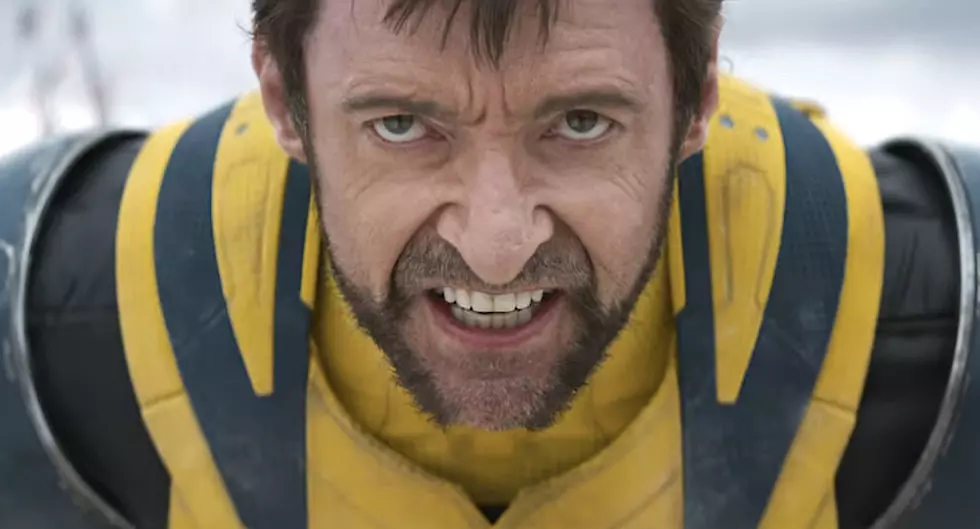
‘Life’ Review: In Space No One Can Hear You Copy ‘Alien’ and ‘Gravity’
After a daring and dangerous rescue mission, the crew of the International Space Station recovers soil samples that contain the first incontrovertible proof that alien life exists. They nurture the sample, a single dormant cell, until it grows into an adorable amorphous blob. The whole world is obsessed with their discovery. A little girl names it Calvin during a worldwide live broadcast from Times Square. The crew is smitten with their new passenger.
And then it tries to eat all of them.
It’s not clear whether the members of the ISS have seen any previous movies about aliens and doomed space missions, but the makers of Life definitely have. Director Daniel Espinosa mashes up Gravity (extreme danger and impressive long takes in Earth’s outer orbit) and Alien (see film’s title) in a way that’s as effective as it is brazen. Sometimes the most terrifying parts of these kinds of movies are the ones you see coming.
Calvin’s targets are a multicultural crew of diseases experts, biologists, and technicians. Dr. Miranda North (Rebecca Ferguson) must maintain the quarantine that separates the humans from their Martian guest. Wisecracking Ryan Reynolds-type Roy Adams (Ryan Reynolds) is responsible for catching the rocket that holds Calvin’s frozen remains. Kat (Olga Dihovichnaya) answers questions from cheerful schoolchildren over Skype; Sho (Hiroyuki Sanada) observes the birth of his daughter via similar video technology. Hugh (Ariyon Bakare) revives Calvin and harbors an affection for his “son” that’s so deep it seems to blind him to the obvious dangers present in their experiments. And David Jordan (Jake Gyllenhaal), who has spent more time in space than any man in history, monitors his colleague’s health and muses about how he never wants to return to Earth.
Early scenes have fleeting moments of playful comedy (screenwriters Rhett Reese and Paul Wernick previously wrote Deadpool) and showcase a deep understanding not only of the tropes of this sort of haunted-house-in-space movie, but also how to undercut them. “I have a good feeling about this!” one character declares early in the film, subverting one of the hoariest lines in all of science-fiction. But the genre disruption only goes so far, and before too long the monster is loose on the station and looking for lunch.
Life belongs to a thriller sub-genre I call the “dumb smart people movie,” in which men and women with the most advanced doctorate degrees in their fields all simultaneously decide to act like total dopes. (See also: Jurassic World.) A certain amount of poor decision-making is believable under the circumstances, and I liked the fact that, after the introductory scenes establish the warm relationships between the crew and the trouble starts, the pleasantries and chain of command break down almost instantaneously. But arguably from the moment things go wrong on the ISS, no one onboard makes a single smart decision. Not one.
It doesn’t take a physicist to know, for example, that randomly firing all the ISS’ rockets in a blind attempt to kill Calvin could have disastrous repercussions for the station’s orbit. And, of course, seconds after these brainiacs try (and fail) to fry the alien with their boosters, the entire ship starts to fall back to Earth. After Calvin begins to mutate (each of its trillions of cells, we’re told, are muscle, brain, and eyeball rolled into one), it sneaks into a supposedly quarantined part of the ship, hiding somewhere for an extended period of time where it could easily have been discovered if anyone onboard used their eyeballs for literally one second.
The centerpiece of the film, when Calvin breaks out of his quarantine to threaten two different crew members, is an impressively sustained piece of cinematic tension; if you’re the sort of viewer who watches scary horror movies through their fingers, expect to miss large portions of Life’s second act. After that, things escalate to an absurd degree, and the characters behave so foolishly that it’s hard to care whether any of them live or die. From there the gratuitous quotations of brilliant movies like 2001: A Space Odyssey begin to feel less clever and more cruel, reminders of the better versions of this story that already exist.
Life works in its incurious way, but as the stakes mounted and the dialogue devolved into a series of assorted grunts and screams, it began to depress me. The late film critic Gene Siskel had a test for movies: “Is this film more interesting than a documentary of the same actors having lunch
Imagine the movie that could be made about the day-to-day challenges that these people face. In 2017, Hollywood only introduces these sorts of worlds and characters to destroy them. Life begins with the discovery of intelligent alien life. It’s the signs of intelligent terrestrial life that are getting harder to find in theaters.
More From ScreenCrush









